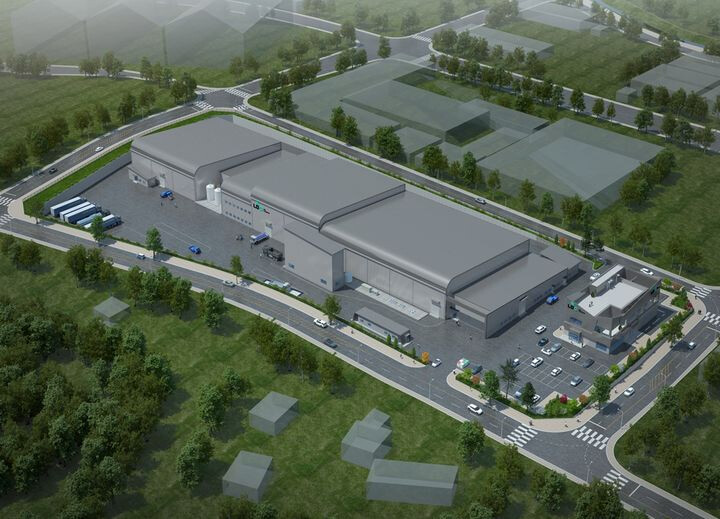
Dangjin, South Korea – LD Carbon, a specialized resource circulation company, announced today the completion of its waste tire resource recycling facility in Hapdeok-eup, Dangjin-si, Chungcheongnam-do, South Korea. The facility, inaugurated on April 24th, is touted by LD Carbon as the largest of its kind in Asia.
Boasting an annual processing capacity exceeding 50,000 tons of waste tires, the state-of-the-art facility is designed to produce valuable recycled resources such as recovered Carbon Black (rCB) and pyrolysis oil. LD Carbon emphasizes the facility's advanced processing technologies, capable of refining particle sizes down to one-hundredth the thickness of a human hair. This precision enables the production of high-quality Carbon Black, a crucial raw material for tire manufacturing.
Established in 2017, LD Carbon has positioned itself as a leader in sustainable raw material technology utilizing waste tires. The company name, an acronym for "Life-cycle Defining Carbon black," reflects its commitment to environmentally responsible practices. Carbon Black serves as an essential component in automobile tires, enhancing the elasticity of rubber and providing the characteristic black pigmentation. Its presence is critical for tires, typically weighing around 20kg, to withstand the weight of vehicles exceeding 1.5 tons while driving.
LD Carbon employs a unique anaerobic pyrolysis process for waste tires, a method it pioneered domestically. This process allows the company to extract not only rCB and pyrolysis oil but also various byproducts, including asphalt modifiers and recovered steel. In contrast, the conventional production of virgin Carbon Black (vCB) through the incomplete combustion of fossil fuels is a significant source of carbon emissions, estimated at 42 million tons annually, and incurs economic losses exceeding 10 trillion won.
LD Carbon's recycled product, "Green Carbon Black (GCB)," offers a substantial reduction in carbon emissions. For the same quantity of Carbon Black produced, GCB manufacturing can decrease carbon emissions by over 32,000 tons compared to the vCB process. The company anticipates further reducing its carbon footprint to near-zero with the future integration of Carbon Capture and Utilization (CCU) technologies into its operations. Prior to the establishment of the Dangjin facility, LD Carbon operated a pilot plant in Gimcheon-si, Gyeongsangbuk-do, to refine its technology and accumulate operational expertise.
LD Carbon's technological prowess places it among the global top players in the recycled Carbon Black industry, competing with established companies in environmentally advanced nations like Germany and Sweden. The Dangjin facility equips LD Carbon with the capacity to mass-produce high-quality rCB that meets the stringent quality standards of global tire manufacturers.
In a move to foster local talent development, LD Carbon is also planning a "talent recruitment business agreement" with Hapdeok High School, located near the Dangjin recycling facility. Baek Seong-moon, CEO of LD Carbon, expressed his ambition, stating, "So far, unicorn companies (companies with a valuation of over 1 trillion won) have predominantly emerged from Seoul. We want to demonstrate that highly competitive companies can also originate from regional areas. We will strive to become a unicorn company that leads the global market."
The completion of this large-scale facility signifies a significant step forward for South Korea's circular economy and highlights the potential of advanced recycling technologies in addressing waste management challenges and promoting environmental sustainability within the crucial tire manufacturing sector. LD Carbon's investment in Dangjin is expected to create local employment opportunities and contribute to the region's economic growth while setting a new benchmark for waste tire recycling on a global scale. The company's focus on technological innovation and sustainable practices positions it as a key player in the transition towards a more resource-efficient and environmentally conscious industrial landscape.
[Copyright (c) Global Economic Times. All Rights Reserved.]






























